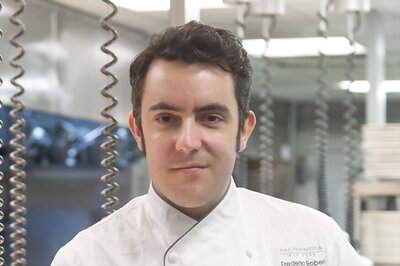
views
BANGALORE: Does your webpage take ages to load, especially when you are making financial transactions? This is probably one of the most common problems faced by the world wide web users. Karthik Ramachandra, a Bangalore based computer science student of IIT Mumbai, is on his way to solve the problem — he is working on a programme that can boost software and Internet speed.Recently Ramachandra was announced the winner of ‘Yahoo!’s Key Scientific Challenges Program, as a result of his venture. He is the first Indian student to clinch the title. The ‘Yahoo!’s Key Scientific Challenges Program provides a unique platform for students to innovate their thoughts on the future of Internet and aims to bridge the gap of PhDs in India. Speaking about the award Ramachandra says that he is honoured and extremely excited to win the award. He says it has given a boost to his confidence level. “After winning the award I realised that the topic of my research was a very relevant one. Apart from the financial support, this award also gives me a chance to work closely with the scientists at the Yahoo Labs,” he exclaims.Ramachandra has been working on his research in the area of Holistic Optimisation of Database Applications under the guidance of Professor S Sudarshan. “I have always been fascinated by the Internet and software technologies. Before joining IIT, I was working in the software industry for five years. It was during my tenure there that I realised, one of the most commonly faced problems associated with the Internet was the speed and the time a software took for loading. Traditional query optimisation and compiler optimisation techniques for applications which operate the data using a relational database have evolved independently over a long time. My aim is to bridge the gap between the two,” says Ramachandra.As far as the progress is concerned, Ramachandra feels there is still more work to do. “As we were progressing in our research, we found a few loopholes that need to be fixed before we can attain the long term goal. Step by step we test every process on our working prototype. For instance, while using an application there are many interruptions. These interruptions are caused when the processing speed reduces. This usually happens when database interactions are heavy. We are attempting to reduce the bulk load,” he explains




















Comments
0 comment